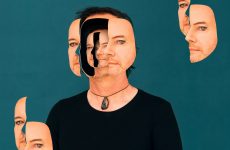
In America today, people’s worst impulses seem to be winning out.
Democrats and Republicans don’t just disagree, they despise each other. The COVID-19 pandemic has become part of the culture wars, instead of a shared foe.
Americans, in general, are suffering from a breakdown in relationships. There’s growing racial, economic and social unrest.
In the past, the country could have relied on people of faith to help tone down incivility and mend partisan rifts. But in 2021, Christians are instead embracing the destructive behavior that’s tearing the country apart, according to Peter Wehner, senior fellow at the Ethics and Public Policy Center in Washington, D.C.
“Many Christians are not offering an alternative to the worst tendencies in our society but are, rather, accelerating them,” he said Tuesday during the opening session of BYU’s Religious Freedom Annual Review.
As a result, Christianity is losing its moral authority at the time it’s needed most. Some Christians today don’t even want to be associated with religious labels, Wehner said.
“Young people, in particular, see faith as an instrument of division in our democracy instead of an instrument of healing,” he said.
For religious Americans, the situation is catastrophic, Wehner added. He then spent the rest of his keynote address outlining what concerned Christians should do next.
Wehner, who previously served as a senior adviser to President George W. Bush, does not believe the answer lies in abandoning politics. It’s actually good for Christians to be engaged in public life, he said.
However, as they dive in to policy debates or election campaigns, people of faith can’t lose site of their core religious teachings, Wehner noted. They need to be guided by the belief that all people are made in the image of God and, therefore, are worthy of respect.
“The great distinctiveness of Christian involvement in public life should be to care for all — for those within our political and religious tribes and those without,” he said.
Christians also need to model good political behaviors, showing how to listen and disagree well, according to Wehner. People of faith should see themselves, as well as their political enemies, as works in progress who still have much to learn and see.
“The world is unfathomably complex,” he said.
To be clear, that doesn’t mean people of faith should “live in perpetual doubt” or stop making truth claims. It does mean they should stop acting as if they have all the right answers, Wehner said.
What the country needs right now is Christians who won’t compromise their integrity in pursuit of power and will serve as the “conscience of the state,” he said.


